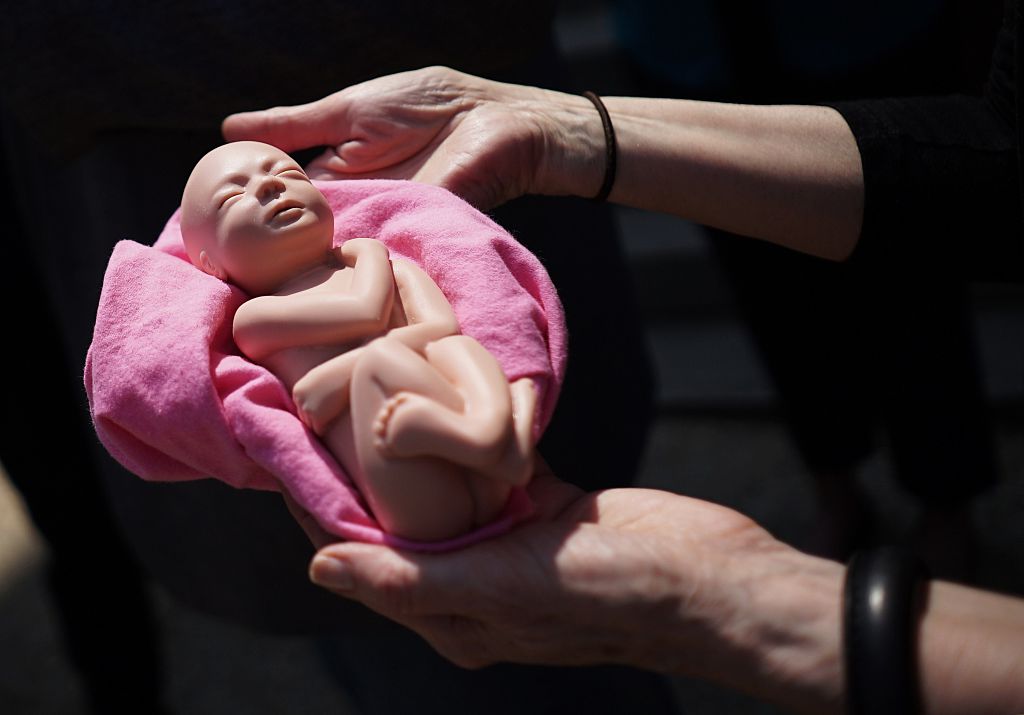News comes through this morning of a big death toll: 200,000 over the past 12 months. What’s more, it has happened right beneath our noses – in Britain. Not that these are recognised as the deaths of humans, because the people in question are not accorded human rights. They are, to use the fashionable term among US abortion campaigners, mere ‘clusters of cells’.
I guess we could all be called by that euphemism – all of us, from Donald Trump to Alexandria Ocasio-Cortez, are in a sense clusters of cells. But it is as strained a description of a 12 week-old foetus as it is of an adult – by that stage a human already has a developing brain, eyes and ears. To deny that such a creature is a human being is to subscribe to the pre-scientific concept of ‘quickening’ – the belief that a foetus magically comes alive at some point in pregnancy.
Of course, as we now know, no such event occurs – rather, a foetus develops by degrees. The only reasonable definition for the beginning of human life is conception. To terminate a pregnancy at any point is to take human life. It is, to put it bluntly, killing a person.
That is not to say that in some cases it is not justified. If a pregnancy is going to kill the mother or put her at risk of serious harm, then it must be terminated. Human rights can never be absolute – there are many instances where the right to life of one person must be balanced against the other. This was the basis of abortion when it was legalised in 1967 – it was to be allowed on the grounds of protecting the mother from serious harm or on the grounds that there was a serious risk the child would be born, in the language of the time, “seriously handicapped”.
But we have not had 200,000 pre-natal medical emergencies in the past 12 months. The reason that we have reached that figure is that the practice of abortion in Britain is completely at odds with the 1967 law.
We have 200,000 abortions a year because we effectively have abortion on demand. What was the first thing the GP said to my wife when she visited the surgery to say she thought she was pregnant with our first child? It was “do you want the child?”. Termination is a service routinely offered in Britain, if not in Northern Ireland, as a matter of choice.
It is yet another case – like drugs policy – where the liberal establishment has simply interpreted the law as it sees fit, regardless of what the law actually says. It does so in utter contempt for democracy. The public has never been consulted on, and our representatives have never passed, a law allowing social abortion.
But more seriously, the practice of abortion shows contempt for the rights of unborn humans. Bizarrely, many of those most contemptuous of the idea that babies in the womb are humans, with rights to go with it, are among the strongest defenders of the rights of humans who have already been born.
They tend to be strong opponents of the death penalty, consistent promoters of the rights of children to be brought up in decent conditions. They tend to be great fighters for equality. Many oppose assisted suicide.
Yet when it comes to the issue of abortion, they refuse to see it any other way than through the lens of the rights of the mother. That the unborn human might have rights, too, is callously dismissed – by pretending there is no human being in the womb at all, just the personal chattels of the mother.
Opposing abortion ought to be a touchstone liberal issue. It ought to be championed by people who want children to be allowed to grow to their full potential, equal and free of discrimination. I have a feeling that one day it will be, for the simple reason that it is intellectually unsustainable to contend that a foetus is not a human being.
Once we can get over seeing abortion as purely an issue of women’s rights, today’s statistic – that 200,000 human lives have been taken in the space of 12 months – will be looked back upon with utter horror.







Comments